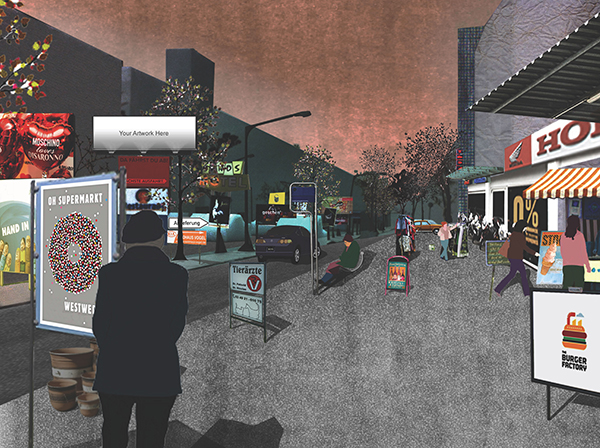ETH Zurich – Institute for Urban Design
HIL H44.1 – Stefano-Franscini-Platz 5 – 8093 Zurich
contact

In large urban areas one can find particular quarters that contribute overproportionally to the social, cultural and entrepreneurial value creation of a city. These quarters are often characterized by intense use of public space and ground floor based activities such as retail, gastronomy and creative industries. They are often located in central areas with a historic and partly devalued building stock, and with divers populations. They serve as a springboard for socially climbing groups, such as migrants, students or entrepreneurs, and they offer the social niches and networks needed to practice unconventional life styles and ways of working.
In recent decades numerous famous and less famous examples of such quarters have developed: Prenzlauer Berg and Friedrichshain in Berlin, the Schanzenviertel in Hamburg, Williamsburg and Tribeca in New York, Prahran in Melbourne, Pera in Istanbul, and many more. Singapore and Zurich also have quarters with comparable characteristics, e.g., Rochor and the Langstrasse. While all of these quarters have developed unintendedly and off the beaten tracks of urban planning, they are of increasing interest today, because they promise what many decision-makers, economists and planners are striving for: Urbanity, identity and innovation.
However, there is a lack of understanding of these quarters and how they can be treated by means of urban design. The questions to be answered are: What are the urban conditions that allow for social, cultural and entrepreneurial value creation? How can these conditions are provided and managed? And finally, how can they be operative on a long term and protected from contrary tendencies such as gentrification and commercialization?
Urban Breeding Grounds is an international research project, based in Singapore and Zurich. It investigates different case studies in Asia and Europe on the basis of research questions and methods that are adjusted to the respective conditions of each site. It is the aim of the project to get a better understanding of Urban Breeding Grounds within different cultural contexts and with the objective to exchange knowledge and design strategies.
Kontakt: Daniel Kiss
This website has been archived and is no longer maintained.